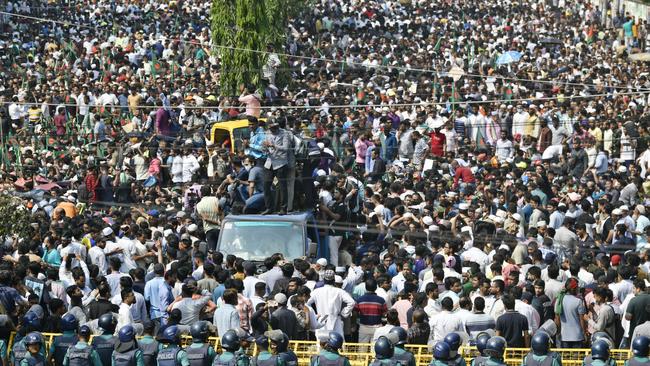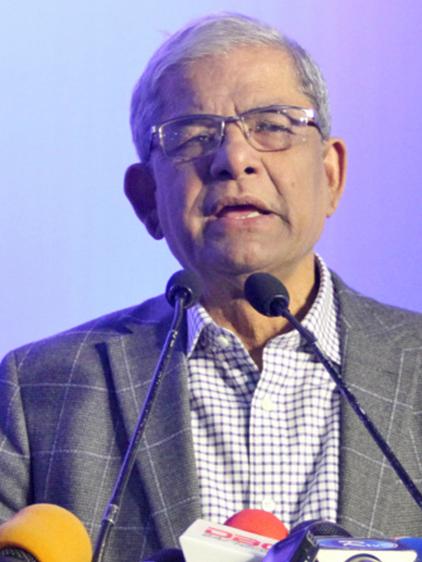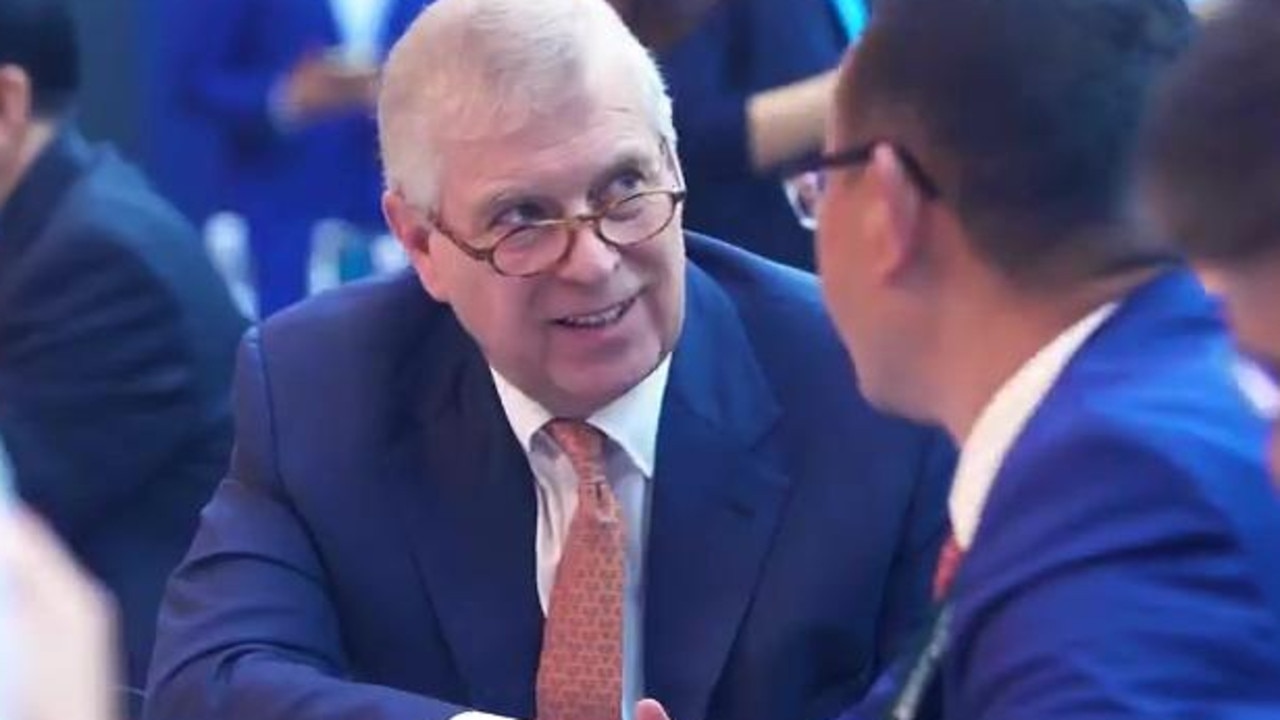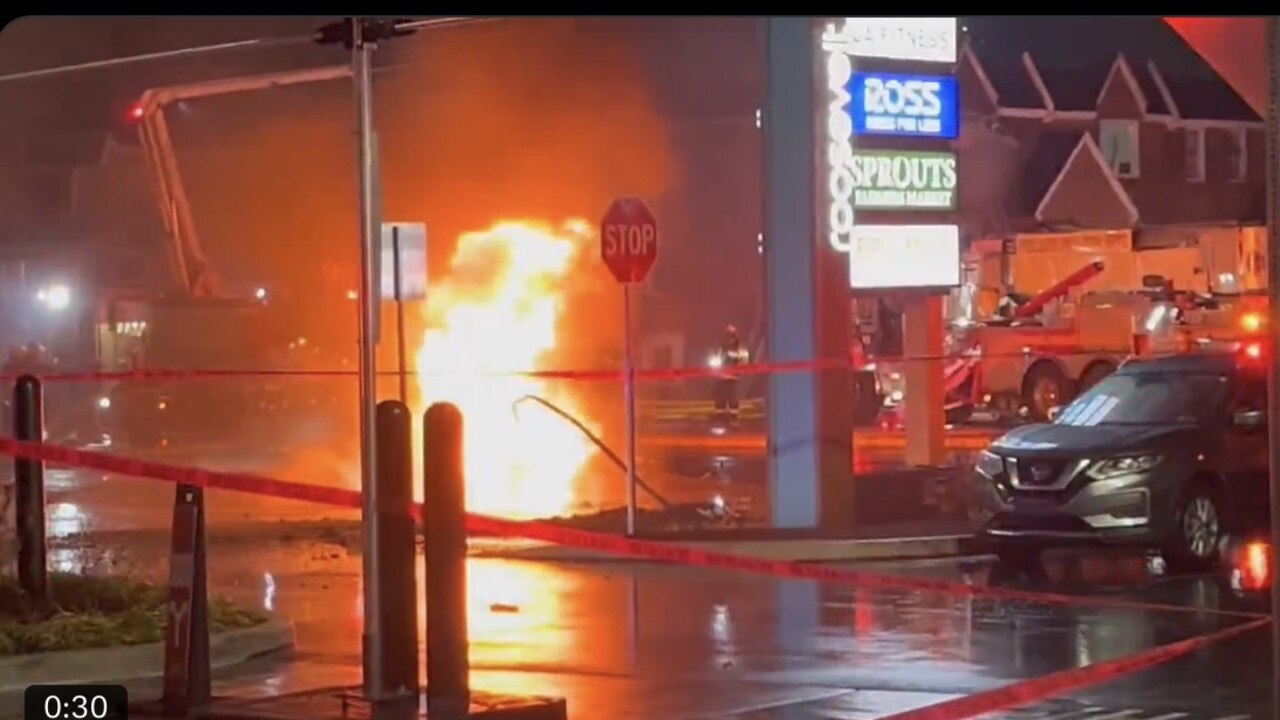Hundred Bangladesh opposition leaders charged with murder
Bangladesh’s ‘battling Begums’ spark fresh cycle of violence with weekend clashes in the capital.

Bangladesh’s main opposition party has called a three-day nationwide blockade of all roads, rail and waterways from Tuesday over the arrest of more than 100 political leaders who face murder charges and possible death sentences over the killing of a policeman in weekend protests which turned violent.
Bangladesh Nationalist Party leader Mirza Fakhrul Islam Alamgir, 75 was among those arrested after more than 100,000 protesters crowded the capital Dhaka on Saturday demanding Prime Minister Sheikh Hasina step down ahead of expected elections in the next three months.
Mr Alamgir’s daughter Shamaruh Mirza, who lives in Australia, confirmed the arrest of her father who was denied bail by a magistrate on Sunday.
Both the US and EU have called for calm after the weekend violence in which a policeman and a BNP youth leader were killed and dozens more injured, though authorities are braced for fresh unrest after the transport blockade was announced.
BNP party spokesman Zahir Uddin Swapan said nearly 3000 party activists and supporters had been detained in the past week, while Dhaka Metropolitan Police said at least 1480 had been arrested and charged with violence since October 21.
The opposition has been piling pressure on Ms Hasina, 76, whose ruling Awami League party has overseen rapid growth in Bangladesh in its 15 years in power but is now grappling with rising inflation, to make way for a caretaker government ahead of elections, which must be held by the end of January. The BNP boycotted the last two elections over allegations of widespread vote-rigging.

BNP chair and former prime minister Khaleda Zia, 77, a bitter rival of Ms Hasina, is under house arrest after serving two years in jail on what supporters insist was a politically motivated corruption conviction – one which has ruled her out of future political leadership contention.
The two women’s political enmity dates back decades and involves a stoush over whether it was Ms Hasina’s father Mujibur Rehman or Ms Zia’s late husband Ziaur Rahman who first declared Bangladesh’s independence from Pakistan in 1975.
Sheikh Mujibur Rehman was Bangladesh’s first president but was assassinated along with most of his family in 1975 by mutinous army officers. Rahman was the country’s sixth president from 1977 but was also assassinated by soldiers in 1981. The feud between the two women – known as the ‘Battling Begums (high-ranking widows) – has trapped the country in a spiral of violence and political enmity.
Despite the opposition’s own history of violent protests before the 2014 elections, the BNP had carefully managed recent demonstrations and blamed Saturday’s violence on heavy-handed police tactics. “The way the police lobbed sound grenades and teargas shells and fired rubber bullets indicate they had a plan to foil our rally,” standing committee member Amir Khasru Mahmud Chowdhury told English language newspaper The Daily Star.
But Awami League general secretary Obaidul Quader compared Saturday’s violence to the January 2021 “terrorist” attack on the US Capitol in the wake of Donald Trump’s election defeat.
Rights groups say rising authoritarianism within the Hasina government has contributed to a climate of fear in Bangladesh.
But Dhaka political science professor Amena Mohsin told The Australian neither side of politics was listening to the concerns of the people amid spiralling food prices and a rampaging dengue epidemic.
“There’s a kind of apprehension about what’s going to happen and a general frustration at the current situation. Despite all the developments, the megaprojects, at the micro level people want to see a functional political system,” she said.



